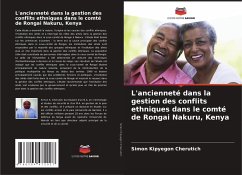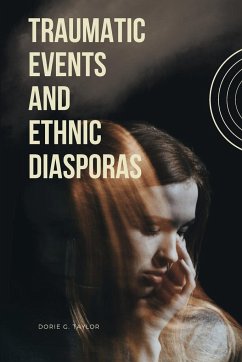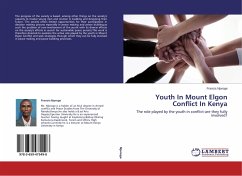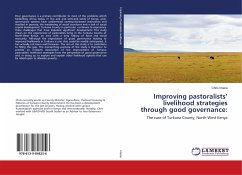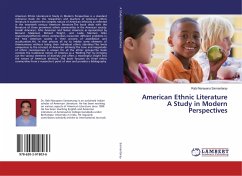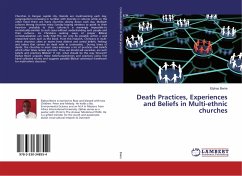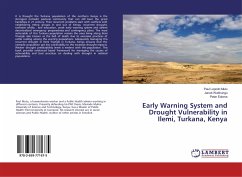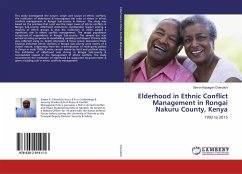
Elderhood in Ethnic Conflict Management in Rongai Nakuru County, Kenya
1992 to 2015
Versandkostenfrei!
Versandfertig in 6-10 Tagen
41,99 €
inkl. MwSt.

PAYBACK Punkte
21 °P sammeln!
This study investigated the nature, origin and causes of ethnic conflicts, the institution of elderhood & interrogated the roles of elders in ethnic conflicts management in Rongai Sub-county in Nakuru. The study was based on the premises that Land was the major cause of ethnic conflicts in Rongai Sub-county, elderhood institutions commanded respect among a majority of ethnic groups & that the institution of elders played a significant role in ethnic conflict management. The target population comprised of respondents in Rongai Sub-county. The sample size was arrived at using purposive & snowbal...
This study investigated the nature, origin and causes of ethnic conflicts, the institution of elderhood & interrogated the roles of elders in ethnic conflicts management in Rongai Sub-county in Nakuru. The study was based on the premises that Land was the major cause of ethnic conflicts in Rongai Sub-county, elderhood institutions commanded respect among a majority of ethnic groups & that the institution of elders played a significant role in ethnic conflict management. The target population comprised of respondents in Rongai Sub-county. The sample size was arrived at using purposive & snowballing sampling techniques. Primary data was collected using in- depth interviews & focus group discussions Study findings indicated ethnic conflicts in Rongai Sub-county were mainly of a violent nature, originating from the re-introduction of multi-party politics in Kenya in early 1990s & were caused mainly by land and political issues. The institution of elderhood was strong in Rongai Sub-county & commanded respect in the management of ethnic conflicts. The study recommends the institution of elderhood be supported by government & given a leading role in ethnic conflicts management.



